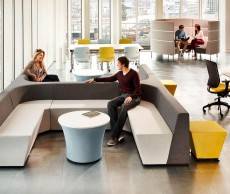February 25, 2016
Over half of UK employers will implement flexible working by next year 0
 The UK is on the verge of a flexible working ‘tipping point’ with more than half of employers offering staff more choice of where to work. Working anywhere: A winning formula for good work? produced by Lancaster University’s Work Foundation, and commissioned by Citrix, reveals that 2017 will be the time when over half of organisations in the UK are likely to have adopted flexible working. It also predicts that over 70 percent of organisations will have followed suit by 2020. The Work Foundation, which hosted interviews with academics, business leaders and the public sector to glean insights around the theme of flexible working, supported by research with 500 managerial level employees within medium to large businesses, warns that there is still much to be done to address attitudes towards flexible working, from ensuring people don’t end up working longer hours to dealing with feelings of ‘disconnect’.
The UK is on the verge of a flexible working ‘tipping point’ with more than half of employers offering staff more choice of where to work. Working anywhere: A winning formula for good work? produced by Lancaster University’s Work Foundation, and commissioned by Citrix, reveals that 2017 will be the time when over half of organisations in the UK are likely to have adopted flexible working. It also predicts that over 70 percent of organisations will have followed suit by 2020. The Work Foundation, which hosted interviews with academics, business leaders and the public sector to glean insights around the theme of flexible working, supported by research with 500 managerial level employees within medium to large businesses, warns that there is still much to be done to address attitudes towards flexible working, from ensuring people don’t end up working longer hours to dealing with feelings of ‘disconnect’.


































February 24, 2016
Too much choice at work just leads to paralysis by confusion 0
by Leeson Medhurst • Comment, Facilities management, Workplace design
(more…)